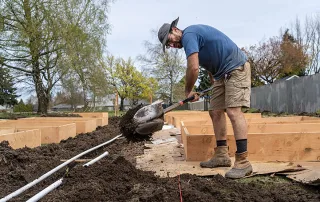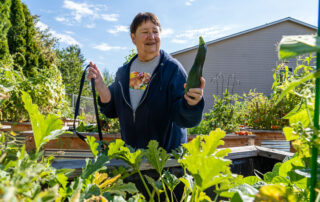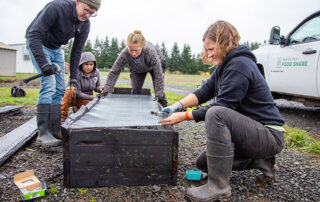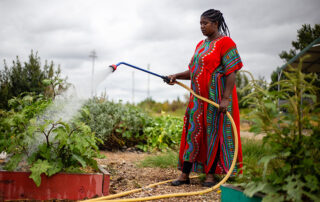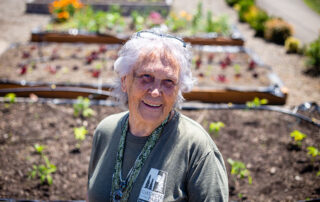Community Gardens
Community gardens grow healthy food and help develop strong neighborhoods. Gardening can be an enriching experience to help families and individuals learn sustainable practices, understand their local climate and support their own food supply.
Community gardens do more than just grow fresh, healthy produce. They bring people together across age and experience, as well as cultural and economic barriers. They unify neighborhoods, improve our health, and add beauty to our environment.
Marion Polk Food Share supports a network of more than 50 gardens in Marion and Polk counties, including gardens with plots that are available for rent.
Find a Garden
If you would like to grow food at a community garden, find the nearest public garden here.
Contact the garden coordinator listed next to that garden to get set up. You may also contact our Community Gardens team, listed below, to assist you in finding a plot.
Grow a Garden
Get Started
The community gardens supported by Marion Polk Food Share are great places to learn how to grow your own healthy food. Each garden is supported by a dedicated volunteer garden coordinator that can help you get started. All gardens also receive resources including seeds, compost for garden beds, plant starts, and other materials necessary to help anyone become a successful gardener. Most gardens have tools available on-site and easy access to water to ensure healthy plant growth.
Gardens are open to all members of our community. Contact us today to get started!
Seed to Supper
In Marion and Polk Counties, the Seed to Supper Program is now being managed by OSU Extension. For more information and to register, please call 503-588-5301 or learn more.
Support a Garden
Donate Funds – Your financial donation will support the community gardens that low-income neighbors rely on to grow their own healthy food. Visit our donation page to give today.
Donate Supplies – The following is a list of the most needed items:
- Plant starts
- Seeds
- Tools
- Lumber
- Landscaping materials
- Small machinery
Volunteer
Get involved by using your time and skills. Fill out an individual volunteer or group volunteer application to get started.
We need support with large projects, which are great for volunteer groups.
- Hauling wood chips or soil
- Building new garden beds
- Planting large crops
Long-term volunteers are also vital to support:
- Soil health
- Watering
- Weeding
- Educational projects
Garden Resources
Click here for resources on a wide variety of gardening topics.
Click here for additional Marion Polk Food Share Community Garden resources.
Use SNAP to Garden
SNAP recipients can spend their benefits on seeds and food-producing plants. Gardening can help extend benefits at the grocery store if you grow some of the food you already need at home.
- Not all retailers who accept SNAP sell food-producing plants and seeds. Find a SNAP retailer located near you.
- If the cashier says that the plants/seeds are not eligible for SNAP, ask to talk to a manager. Show the manager the resource page of items eligible to purchase with SNAP.
- El Supplemental Nutrition Assistance Program o SNAP



